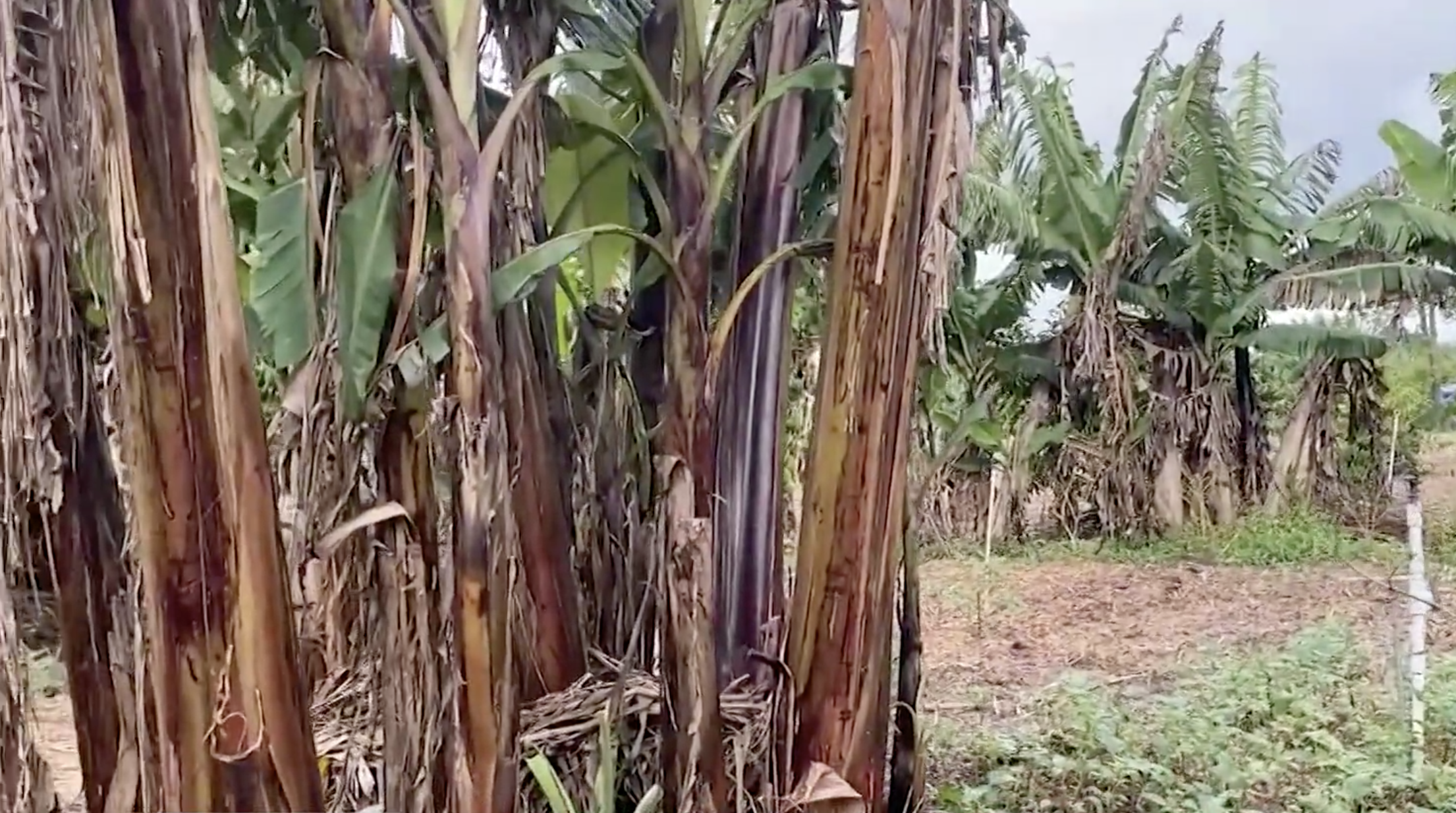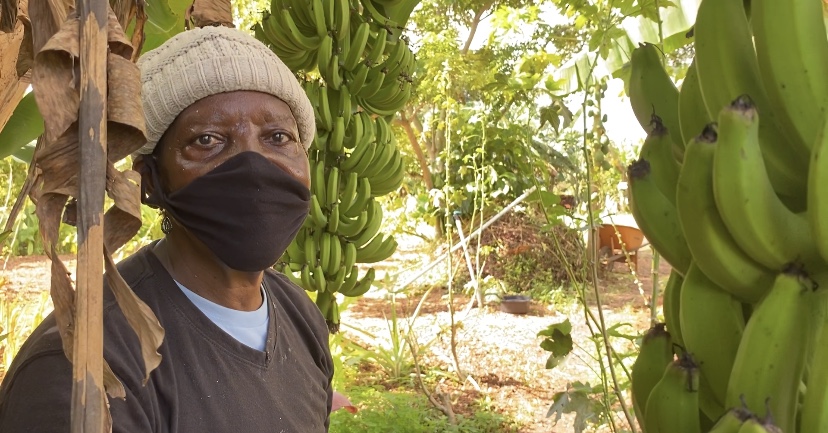
Watch the video report here.
Many South Florida farmers are still picking up the pieces after Tropical Storm Eta destroyed 80 percent of their crops.
Millie Green is a farmer from Jamaica. She maintains two acres of farmland in Davie, Florida. Her garden includes a number of herbs, fruits and vegetables native to her island. But the storm destroyed most of her crops. Atlanta Black Star visited Green just days before the devastation.
"You remember when you [saw] the pepper? Everything is dead [now]," said Green.
The storm hit South Florida on Nov. 12, and several farmers said their crops saw between 15 to 20 inches of rain. The excess of water killed off most of the younger crops.
"Everything. We lost everything," said Green.
Sour sap, callaloo, plantains and sugar cane were some of the crops destroyed in the storm. Yet Green is optimistic.
"Wait and see, in three months I'll have all of this back up," said Green, pointing to her land. "It will take me three to five months."
Ronston Thomas,72, told Atlanta Black Star that this was not the first tropical storm that he had experienced but he believes it is the worst.
"I'm just trying to see if I can make a couple of dollars," said Thomas. "[This is] my main source of income, no other source."
Atlanta Black Star spoke with the Florida Chapter of the Black Farmers Agriculture and Agriculturalist Association to get an idea on what it will take to get the land back into production.
"You're going to have to clear whatever residual, damaged crops that there are in your field; you have to clear that," explained Fred Ganious, the director of the farmers group's Florida chapter. "In some instances, it may require burning. Some instances it may require disking. You don't want to have the residuals causing issues — insects or things that won't assist in the growth of the new plants."
Ganious, who is also a longtime farmer, said that turning devastated crops around is hard work, but possible.
"It requires that the crops are burned and that's not always negative, it may be an advantage to killing seeds that weren't there before and anything that is out of place," explained Gainous. "If a rose is in the middle of the cornfield, it is a weed because that's not where it belongs."
These farmers each have a long road ahead of them. Many of them said that giving up is not an option. The fruits and vegetables produced on these farms help to contribute to Florida's food security in addition to providing Jamaican native produce that cannot be imported due to COVID-19.











